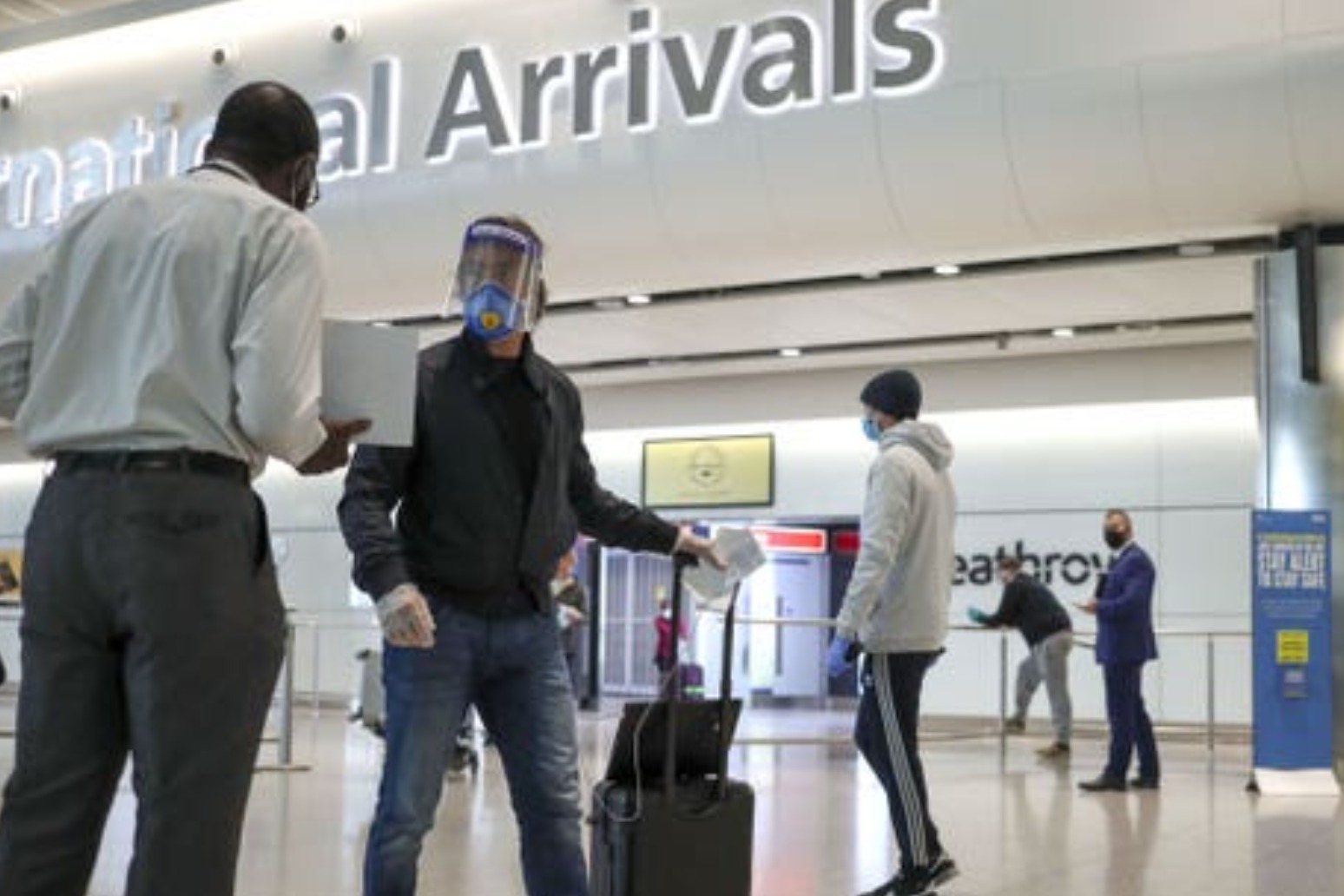
Threat of 10-year sentence for arrivals hiding high-risk travel criticised
Ten-year jail sentences for travellers who try to conceal journeys to high-risk countries have been branded “extraordinarily high” in a backlash against the Government’s plan to tackle coronavirus variants. Matt Hancock announced a requirement for UK residents returning to England from 33 “red list” countries to pay £1,750 to quarantine for 10 days in Government-designated hotels.
The Health Secretary said those caught lying about their movements could be fined £10,000 or be jailed for 10 years.
It comes amid continuing concerns over home-grown coronavirus strains as scientists advising the Government added one detected in Bristol to its “variant of concern” list.
Former Supreme Court justice Lord Sumption hit out at the punishment and said it should not compare to those for violent or sexual crimes.
“Does Mr Hancock really think that non-disclosure of a visit to Portugal is worse than the large number of violent firearms offences or sexual offences involving minors, for which the maximum is seven years?” the peer wrote in the Daily Telegraph.
Former attorney general Dominic Grieve also told the paper: “The maximum sentence of 10 years for what is effectively a regulatory breach sounds, in the circumstances, unless it can be justified, extraordinarily high.”
Mr Hancock had earlier told MPs: “I make no apologies for the strength of these measures, because we’re dealing with one of the strongest threats to our public health that we’ve faced as a nation.”
He also confirmed a new “enhanced testing” regime for all international travellers, with two tests required during the quarantine process from Monday.
Those who fail to take a test face a £1,000 fine, followed by a £2,000 penalty and an extension to their quarantine period, to 14 days, if they miss the second test.
Mr Hancock indicated the quarantine measures might be in place until the autumn if vaccine booster jabs are needed in response to coronavirus variants.
He told the Commons that 16 hotels have been contracted to provide 4,600 rooms for the quarantine programme, which begins on Monday.
The Scottish Government said this approach is “not sufficient” so it is requiring all international travellers arriving into Scotland to stay in a quarantine hotel.
No international flights are currently operating to Wales or Northern Ireland, but Stormont’s chief medical officer Dr Michael McBride said it is “crucially important” for the nations to work together to stall the arrival of new and concerning strains from abroad.
Shadow health secretary Jonathan Ashworth claimed the public wants the Government to “go further” on border measures.
“Our first line of defence is surely to do everything we can to stop (new variants) arising in the first place,” the Labour MP said.
“That means securing our borders to isolate new variants as they come in. He’s announced a detailed package today but he hasn’t announced comprehensive quarantine controls at the borders.”
Travel trade organisation Abta said requiring passengers to pay for multiple tests once leisure travel is restarted would have “serious cost implications” and “hurt demand”.
A spokeswoman urged ministers to “develop a roadmap to reopen travel”.
Single adults will be charged £1,750 for a 10-day stay in a quarantine hotel, which covers the hotel, transfer and testing.
Meanwhile, the New and Emerging Respiratory Virus Threats Advisory Group (Nervtag) added the variant detected in Bristol to its “variant of concern” list.
A strain identified in Liverpool was also classed as a “variant under investigation”.
Public Health England’s Dr Susan Hopkins said the relatively slow rise in cases of the South African and Bristol variant is “reassuring”.
But she warned that controlling them will become much more challenging as lockdown is relaxed.
Health officials said they had so far found 76 cases of the Bristol and Liverpool variants in the UK.
Both those variants contain the E484K mutation, a genetic change also found in both the South African and Brazilian variants, which experts suggest may be better at evading the human immune response.
The Department of Health and Social Care also said extra coronavirus testing will be carried out in the borough of Lambeth, south London, after a case of the South African variant was discovered.
In a more positive development, The Sun reported official data from tests on the Pfizer vaccine showed a single dose could reduce the risk of infection by around 65% in both older people and young adults after as little as two weeks.
Published: by Radio NewsHub